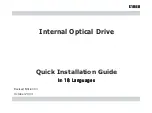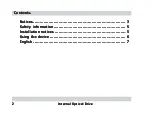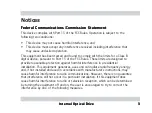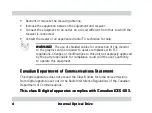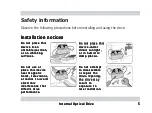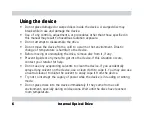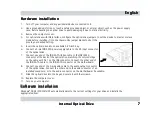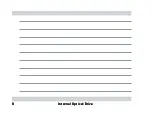
3
3
3
3
3
I n t e r n a l O p t i c a l D r i v e
I n t e r n a l O p t i c a l D r i v e
I n t e r n a l O p t i c a l D r i v e
I n t e r n a l O p t i c a l D r i v e
I n t e r n a l O p t i c a l D r i v e
Notices
F e d e r a l C o m m u n i c a t i o n s C o m m i s s i o n S t a t e m e n t
F e d e r a l C o m m u n i c a t i o n s C o m m i s s i o n S t a t e m e n t
F e d e r a l C o m m u n i c a t i o n s C o m m i s s i o n S t a t e m e n t
F e d e r a l C o m m u n i c a t i o n s C o m m i s s i o n S t a t e m e n t
F e d e r a l C o m m u n i c a t i o n s C o m m i s s i o n S t a t e m e n t
This device complies with Part 15 of the FCC Rules. Operation is subject to the
following two conditions:
•
This device may not cause harmful interference, and
•
This device must accept any interference received including interference that
may cause undesired operation.
This equipment has been tested and found to comply with the limits for a Class B
digital device, pursuant to Part 15 of the FCC Rules. These limits are designed to
provide reasonable protection against harmful interference in a residential
installation. This equipment generates, uses and can radiate radio frequency energy
and, if not installed and used in accordance with manufacturer’s instructions, may
cause harmful interference to radio communications. However, there is no guarantee
that interference will not occur in a particular installation. If this equipment does
cause harmful interference to radio or television reception, which can be determined
by turning the equipment off and on, the user is encouraged to try to correct the
interference by one of the following measures.

